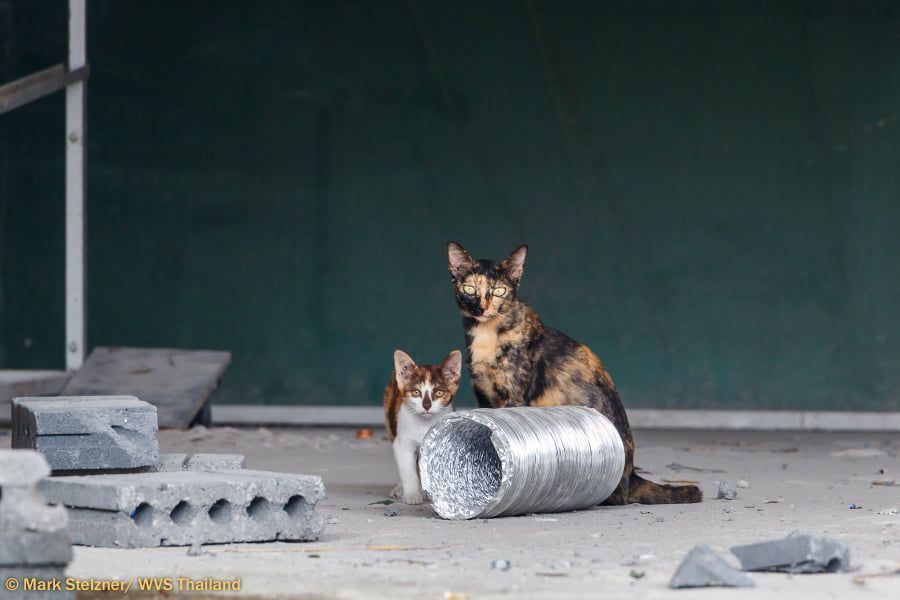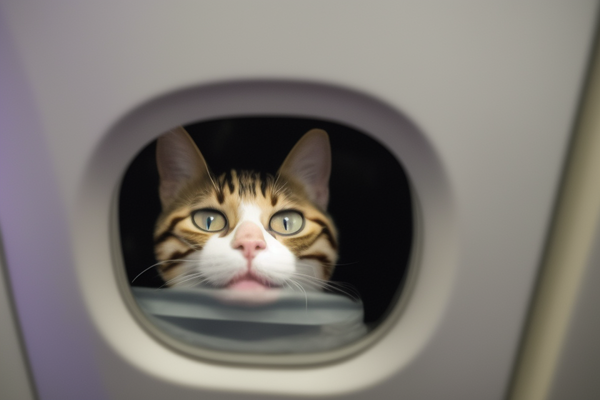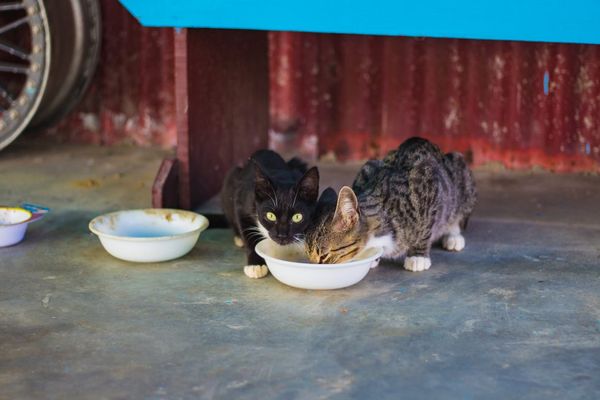Sterilizing Feral and Free-Roaming Cats in Chiang Mai
There are hundreds if not thousands of stray cats living on the streets in our community. Unfortunately – most of them share the same destiny: short and difficult lives.
Free-roaming cats can be strays, unsocialized feral cats born on the streets, or even pets whose owners abandoned them. Once you have any amount of unsterilized free-roaming cats in any community, they multiply very quickly. Cats have a very high reproductive rate, but an average of 75% of kittens who are born on the streets will die before they’re 6 months old.
The worst thing that humans can do in this situation is nothing. Having successful programs that trap, neuter and return (TNR) free-roaming cats can decrease overall numbers over time. A TNR program with a high-impact can reduce a huge amount of suffering and prevent tens of thousands of deaths.
Taking a street cat to be sterilized
Fortunately, many Thai cats become socialized from growing up with prolonged exposure to humans. Many restaurants and hotels feed community cats too. It’s not uncommon for people to become friends with their neighborhood cat, or even to start giving it treats and feeding it occasionally. While this is a welcome act of kindness, it would impact the life of the cat and of the entire colony much more if you are able to take them to a vet to be neutered (male) or spayed (female).
This will help to reduce suffering and reduce the amount of preventable deaths. But it will also have a huge positive impact on the individual cats life.
Sterilized cats, even those which live on the street, enjoy a much higher quality of life:
- Longer life expectancy
- Less likely to develop a number of diseases including breast and testicular tumours
- Less likely to fight, which causes injury and disease
- Females won’t continue to produce litters, which improves their health considerably
The good news is that if you’ve already gained the trust of a cat and can put it inside a cat carrier, then it’s an easy process to take it to a vet and get it sterilized, before releasing it again.
We have got a list of recommended vets in this post which you can refer to if you’re planning to trap and neuter a cat near you!
Trapping feral cats
Sterilizing feral cats is a very different experience to taking a friendly cat that comes to visit for food and cuddles every day. You’ll often need to use a humane cat trap to capture a feral cat and take it to the vet directly inside the trap.
We have several cat traps at Adopt Meow which are available to loan if you’re hoping to capture a feral cat in your neighborhood, just get in touch with us and we can help. Here’s what a trap looks like:
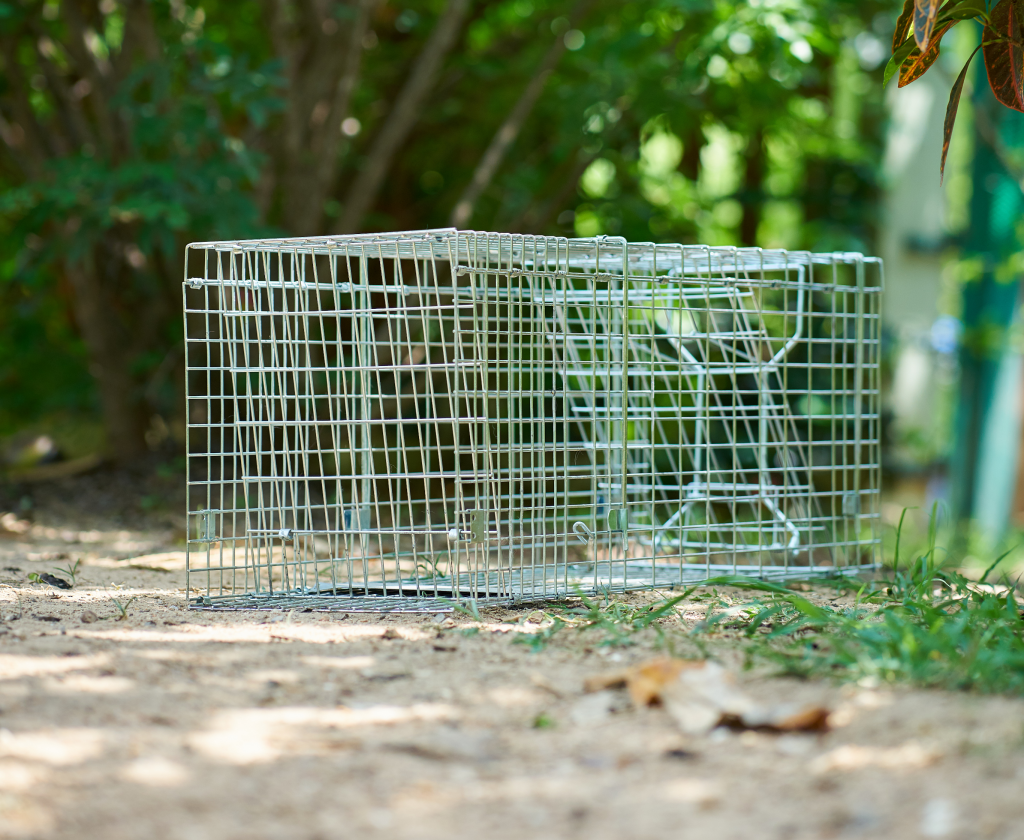
It can feel a little bit mean to trap a cat against its will and take it to the vets – so it’s important to remember that a few days of discomfort will set them up for a better life in the future. They will protest and be very upset with the process, but they will go on to live happier and healthier lives.
Releasing a sterilized cat
Always make sure you let your chosen vet know that this is a street cat or a community cat when you bring it in to be sterilized. This is important information so that they’re able to advise when the cat is stable enough to be picked up and released again. In particular, we recommend โรงพยาบาลสัตว์ดอนแก้ว Donkaew Animal Hospital for sterilizing cats, because they’re used to dealing with feral and stray cats, and they have very affordable prices.
It’s important to release the cat where you found it, so that it can go back to its normal life. If you release it in a new place, then it may run into problems when it meets other colony cats in that area.
Female cats take longer to recover since their surgery is much more invasive. We generally recommend paying a little extra to give females some long-lasting antibiotics and dissolving stitches before releasing them onto the streets, since you won’t be able to take them back to the vet for a checkup. If the cat is well socialized, then you could also choose to keep the cat at your home for a day or two, to make sure their recovery goes well.
Sometimes – the only option is to release the cat again, so it’s important to wait until the anesthetic has fully worn off and the cat is able to go back to its normal life. Especially for feral cats which are not socialized, they will run away as soon as you release them, so you need to make sure they’re as stable as possible. This might feel a little concerning, but remember that feral cats are very resilient and cats generally heal very fast.
Sterilizing feral cats can make a huge difference
You can make a huge impact by helping to trap, neuter and release cats in our community. Each sterilized female can prevent thousands of kittens from being born with extremely low chances of survival.
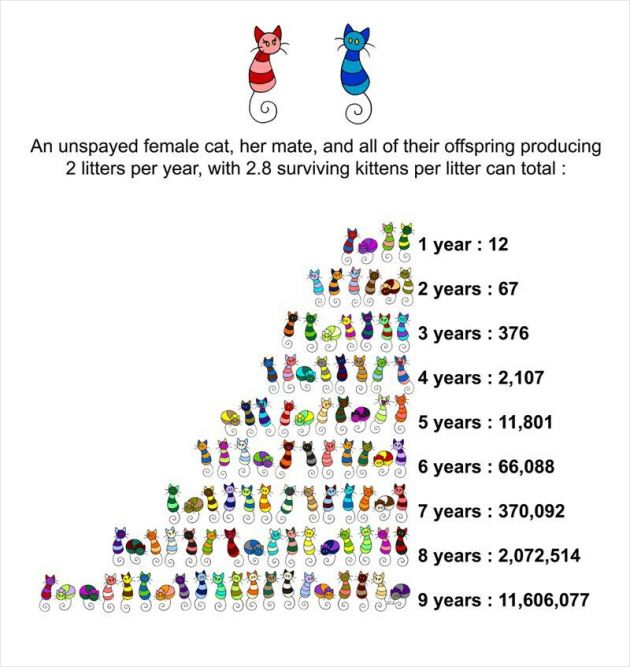
At Adopt Meow, along with our partners WVS Thailand, we frequently run sterilization days where we catch, sterilize and release many cats at once. If you know of a colony that needs our help, let us know and we may be able to help next time we're running a programmed day.
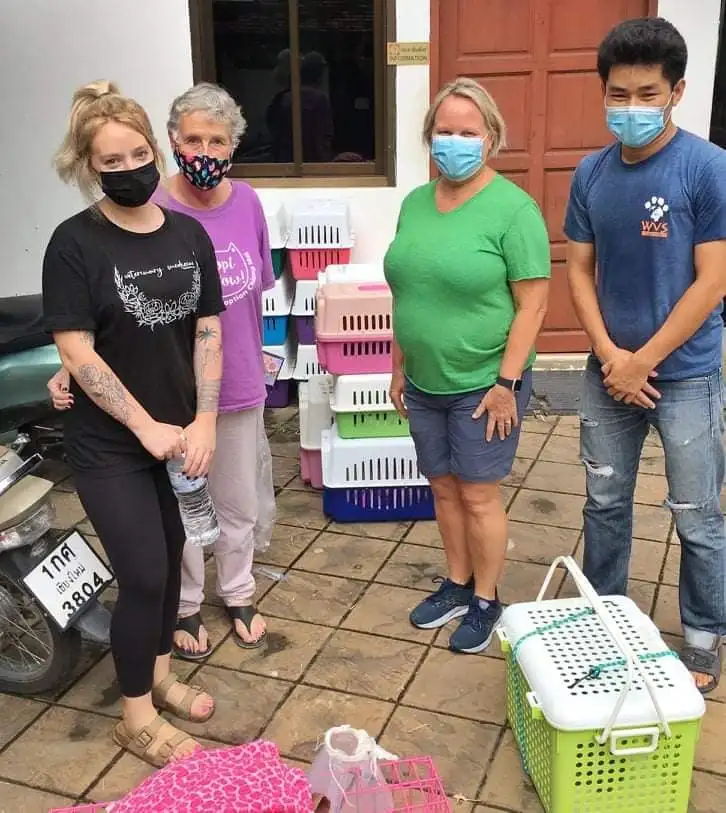
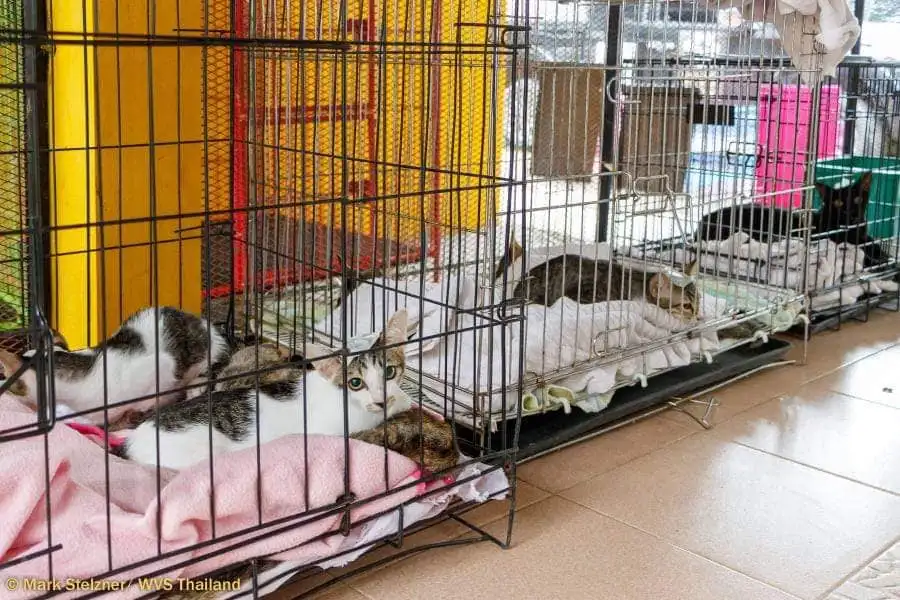
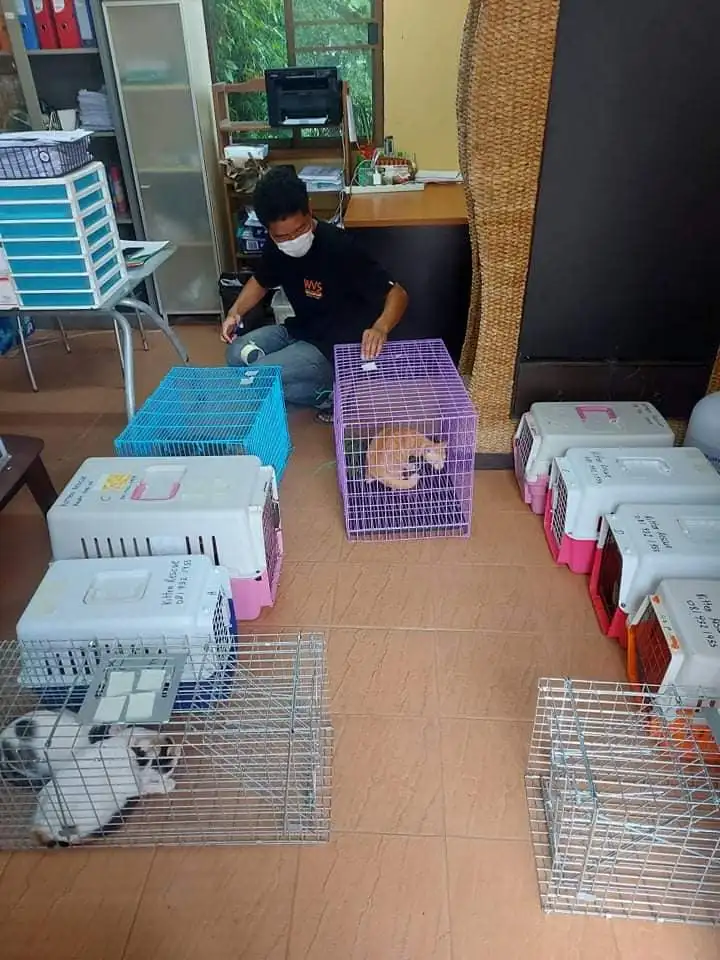
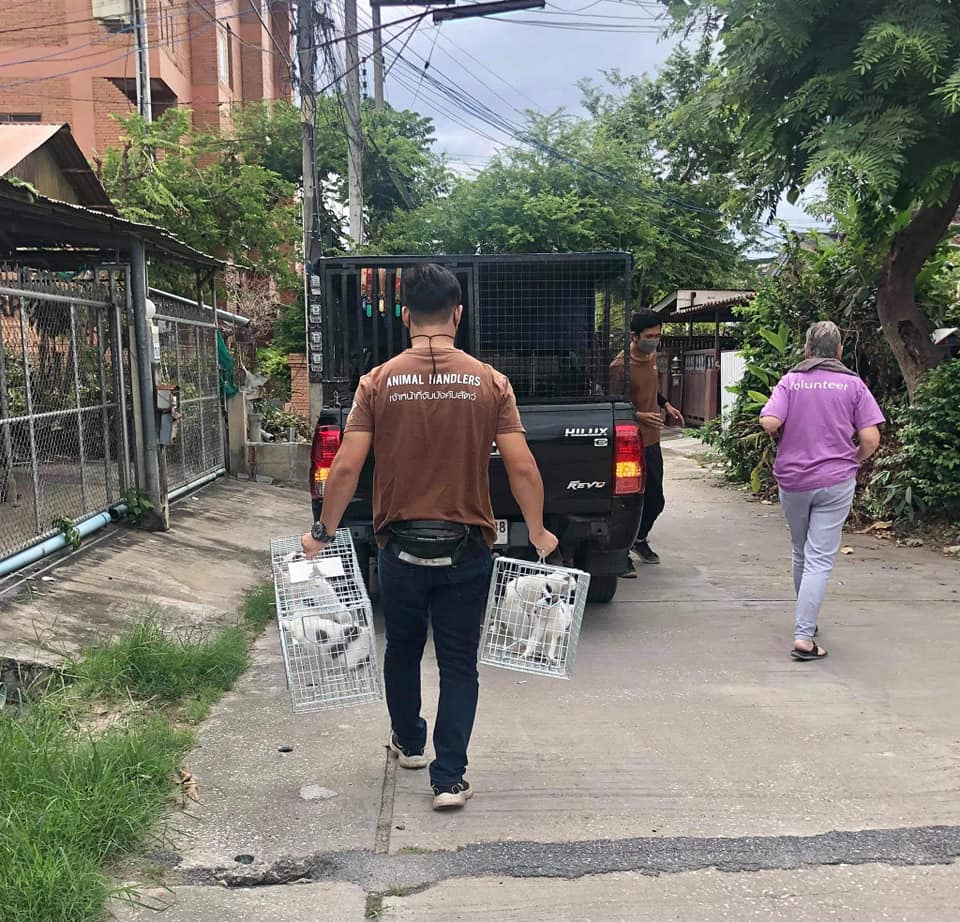
Get Involved
If you’re hoping to sterilize a cat that you know in Chiang Mai and would like some advice, or need to use one of our cat traps which are available to loan, contact us. We’re happy to talk you through the process or help with transport where necessary.
We hope you have found our articles useful. All of our education and advice is available for free, wherever you are in the world.
As a charity we rely on donations to allow us to continue helping cats in our local community, and to keep updating this site with useful information.
Any donation to support our work at Adopt Meow is greatly appreciated.


